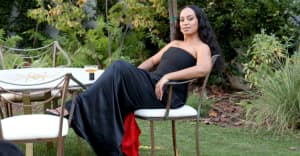“I’ve realized how powerful it is for me to just discuss issues with young people and begin conversations,” Amandla Stenberg told FADER last fall. The latest issue of Teen Vogue contains one of these conversations between Stenberg and Solange Knowles. “I got cast in The Hunger Games,” the actress/activist tells her interviewer, “and people called me the N-word and said that the death of my character, Rue, would be less sad because I was black. That was the first moment I realized being black was such a crucial part of my identity in terms of the way that I was perceived and how it would affect any line of work that I wanted to pursue.”
“I think that as a black girl you grow up internalizing all these messages that say you shouldn’t accept your hair or your skin tone or your natural features, or that you shouldn’t have a voice, or that you aren’t smart,” Stenberg continues. “I feel like the only way to fight that is to just be yourself on the most genuine level and to connect with other black girls who are awakening and realizing that they’ve been trying to conform.” “There are still moments now where I’m like, ‘Whoa, this is a lot of pressure,’” she adds. “But it’s worth it because when people come to me and say, ‘I’m more comfortable in my identity because of you,’ or ‘I feel like you’ve given me a voice,’ that’s the most powerful thing ever.”
Read the whole discussion here, and revisit Stenberg’s FADER interview.


